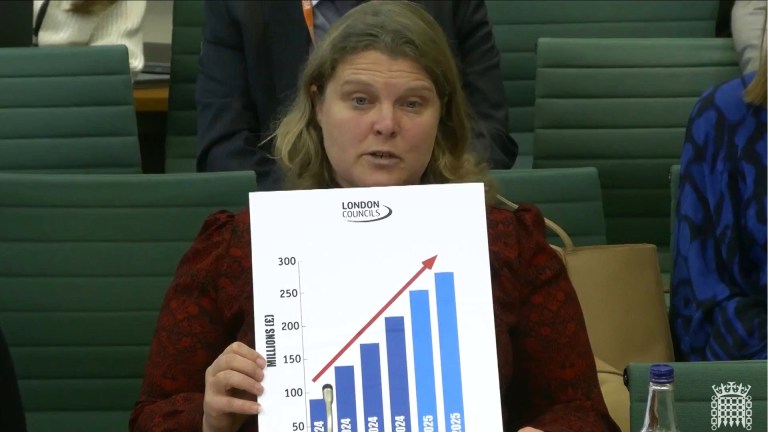If you do sublet to someone, make sure you do so according to what was agreed with the head landlord. For example, if you get written permission to sublet a room in the property but end up subletting the entire home, that would still be illegal.
Remember that subletting a room in a rented property has risks even if done lawfully. It can make it easier for the head landlord to evict you, for example, and it can affect the amount of tax you owe or the benefits you’re entitled to claim. You’ll also be liable for the rent if your subtenant doesn’t pay and falls into rent arrears themselves.
Can you sublet a council house or flat?
The rules for subletting in social housing are slightly different. Subletting the entirety of a council house or flat is not allowed and the penalties for doing so can be severe.
That said, subletting part of your home might be allowed with prior written consent from the council. This could apply, for instance, if you’re renting out a spare room to help make ends meet. Always check with your local council housing office before making any decisions. You might be denied permission because it would make your home overcrowded or because you want to charge too much in rent. The council could also refuse permission if the person you want to sublet to has a history of antisocial behaviour.
Consequences of illegal subletting in the UK
Illegal subletting can have serious consequences, both for the tenant and the subtenant.
Advertising helps fund Big Issue’s mission to end poverty
The most immediate risk is eviction. If your landlord discovers you’re subletting without consent, they can take legal action to evict you from the property. In some cases, landlords may pursue legal action for breach of contract and seek financial compensation.
For people in council housing, illegal subletting is not just a civil matter but can lead to criminal charges. Depending on the type of tenancy agreement you have, you could face eviction, fines or a prison sentence.
Being evicted for illegal subletting can make it difficult to find rental properties in the future too, as most landlords conduct background checks and could refuse to rent to someone with a history of eviction.
And while subletting can ease some financial pressures on the main tenant, it could also leave you out of pocket further down the line. If the subtenant decides to stop paying rent, the original tenant is responsible for paying the full rent amount to the head landlord.
Remember you could be subletting without realising what you’re doing. If you have someone staying with you, such as a family member or friend, they have a space in the home that you have agreed is their private space and they’re paying you rent, that would be considered subletting by a landlord.
How to sublet legally
While there are several pitfalls, subletting can be done legally if you follow the proper steps. Here’s how to ensure you’re on the right side of the law:
Advertising helps fund Big Issue’s mission to end poverty
- Check your tenancy agreement. Always start by reviewing your tenancy agreement to see if subletting is permitted. If it’s not explicitly mentioned, ask your landlord before you take any other action
- Get written consent from your landlord before subletting. This protects you from potential eviction and ensures that all parties are aware of and agree to the arrangement
- Draft a subletting agreement. Create a formal subletting agreement outlining the terms of the sublet, including rent, duration, and responsibilities for all parties. Both you and the subtenant should sign this document
- Notify your landlord. Keep your landlord informed about who will be living in the property, when they’re moving in, and any other relevant information. Provide them with the subtenant’s details and contact information
- Comply with legal requirements and safety regulations. That includes ensuring the property meets fire, gas and electrical safety standards. Give the subtenant a copy of the energy performance certificate (EPC) and make sure they understand their responsibilities for keeping the home safe
- Inform your insurance company. Let your contents insurance provider know that you have a subtenant – failing to do so could invalidate your policy
The more people struggle to afford rent, the more attractive a prospect subletting becomes for many. Rent costs have increased by 18% since 2022, according to research by the Resolution Foundation – and could rise by another 13% over the next three years.
“Millions of families agreeing new tenancies across Britain have faced surging rents in recent years, as we have emerged from the pandemic,” said Cara Pacitti, senior economist at the Resolution Foundation.
“Those rises for new tenancies are starting to slow, but how much renters actually pay will continue to outgrow how much they earn for some years to come as those not yet exposed to higher prices are hit.”
I think my landlord is illegally subletting to me
It’s not just tenants who can get into hot water with subletting – landlords can too. If you suspect your landlord is illegally subletting the property to you, there are steps you can take.
Remember that if you’re a subtenant, your landlord is the pre-existing tenant who is subletting to you. It’s unlikely that you’ll have a direct relationship with the head landlord.
Firstly, check the ownership of the property. You can do this through the Land Registry for a small fee. If the person you’re paying rent to isn’t listed as the owner or their agent, this could be a red flag.
Advertising helps fund Big Issue’s mission to end poverty
Next, gather evidence. Keep records of all communications and payments made to the landlord. This will be crucial if you need to take legal action.
If you’re certain that your landlord is illegally subletting, you can report them to the local council or seek legal advice from a solicitor or a housing charity like Shelter. Illegal subletting can lead to fines and other penalties for the landlord, and you may be entitled to compensation or a refund of rent paid.
Subletting can be a minefield, but with the right knowledge and proper procedures, it can also be a viable solution for tenants looking to share costs. Always ensure you have the landlord’s written consent and comply with all legal requirements to avoid legal headaches. And if you suspect your landlord is subletting to you unlawfully, don’t hesitate to take action to protect your rights.
Do you have a story to tell or opinions to share about this? Get in touch and tell us more. Big Issue exists to give homeless and marginalised people the opportunity to earn an income. To support our work buy a copy of the magazine or get the app from the App Store or Google Play.










